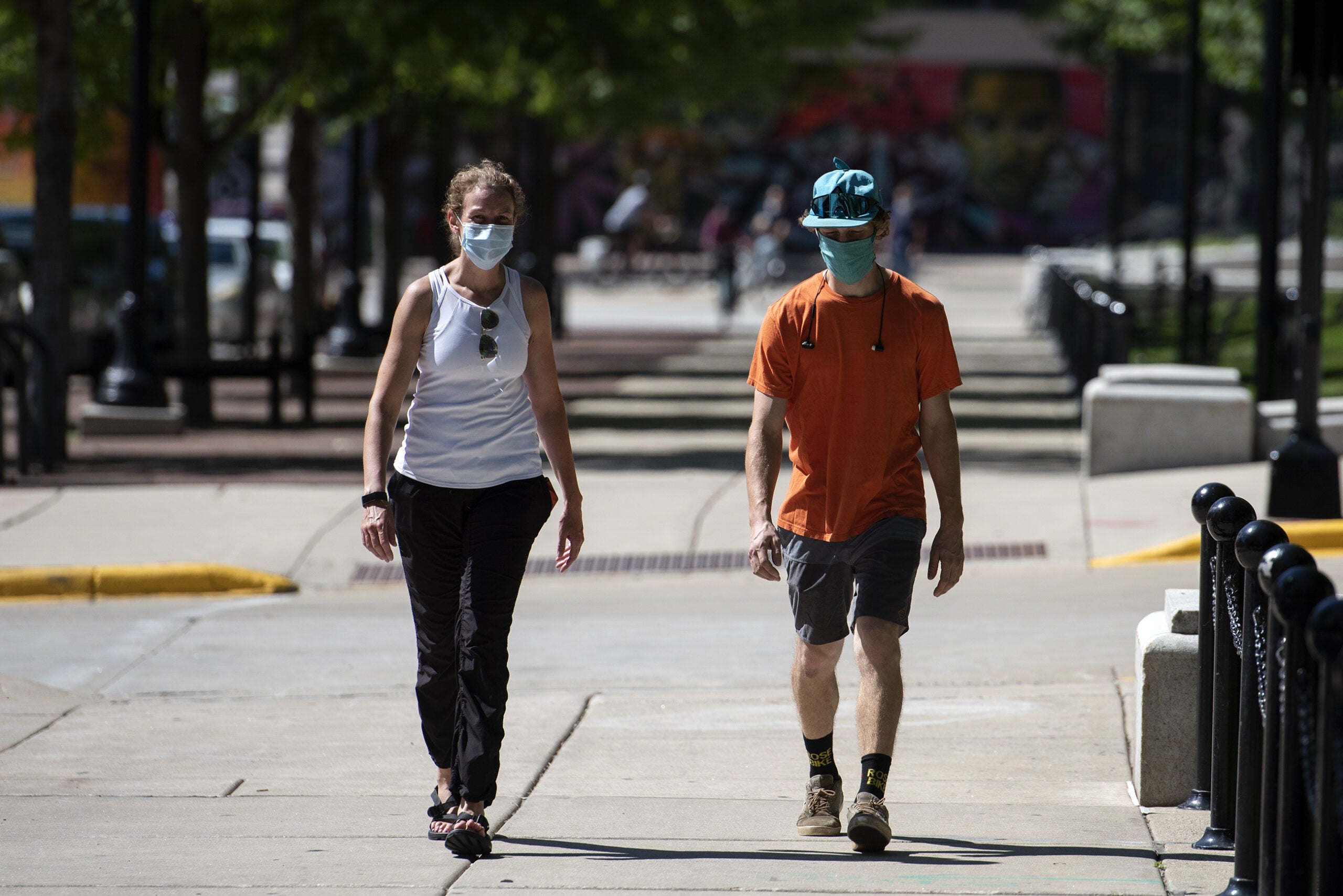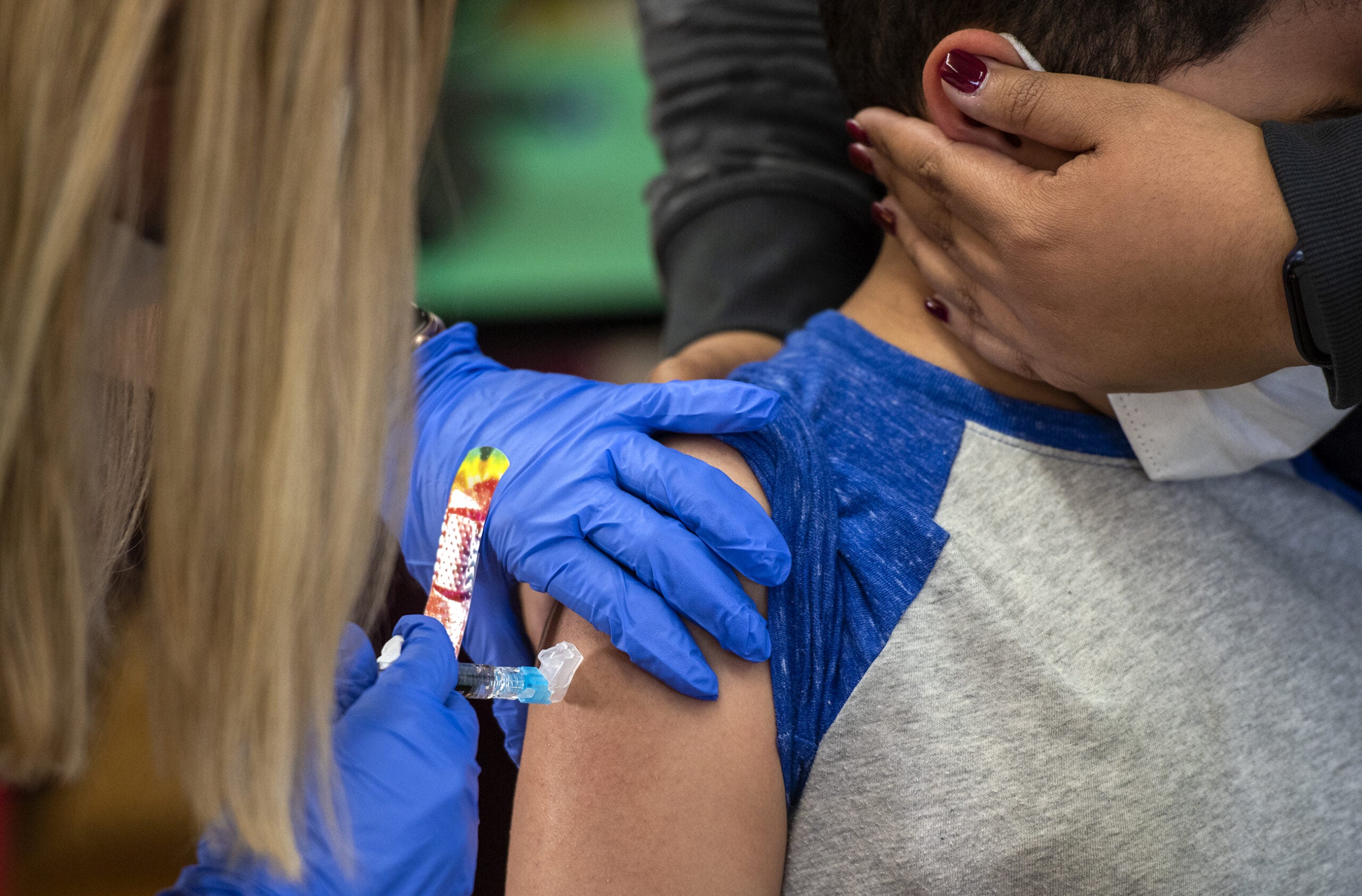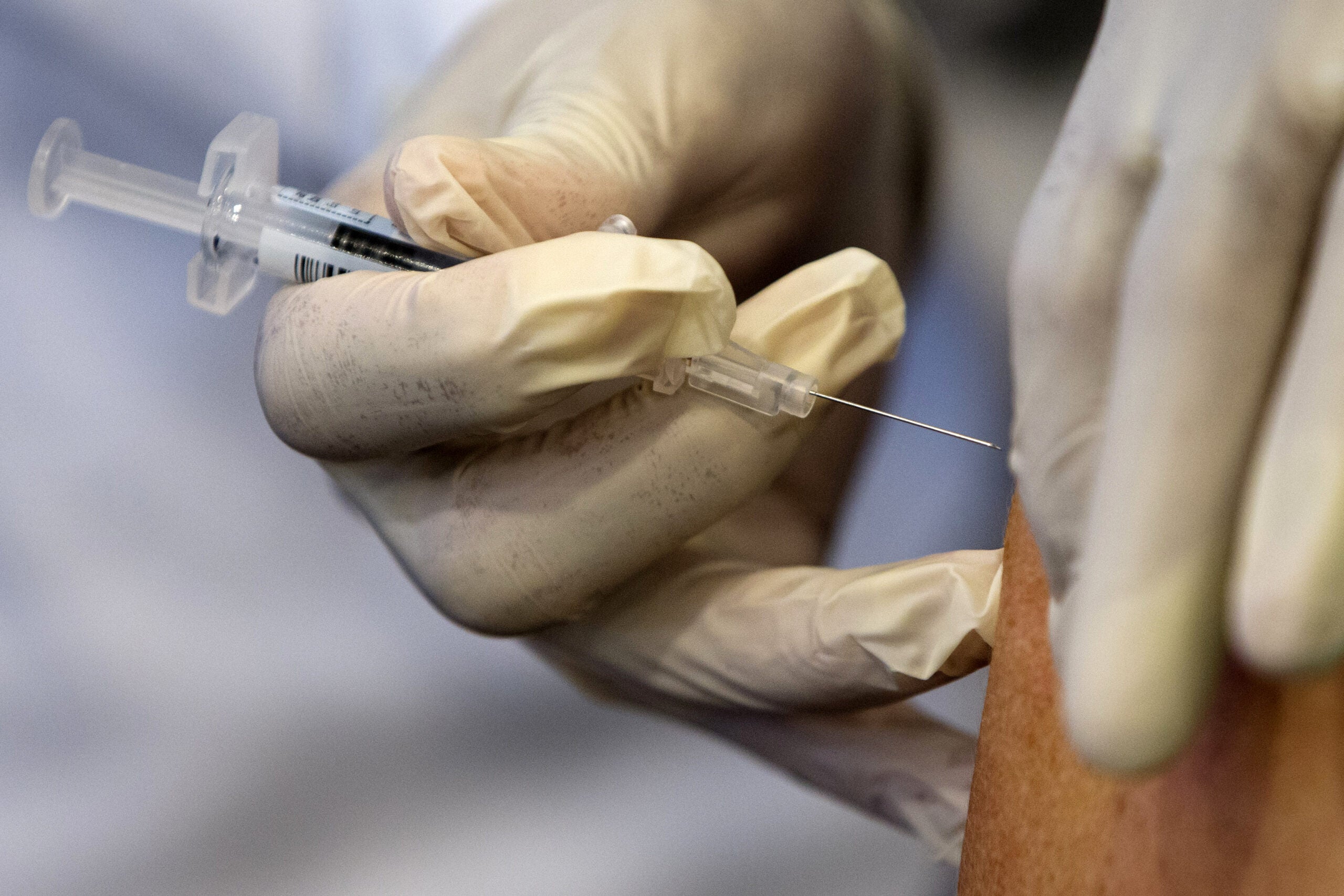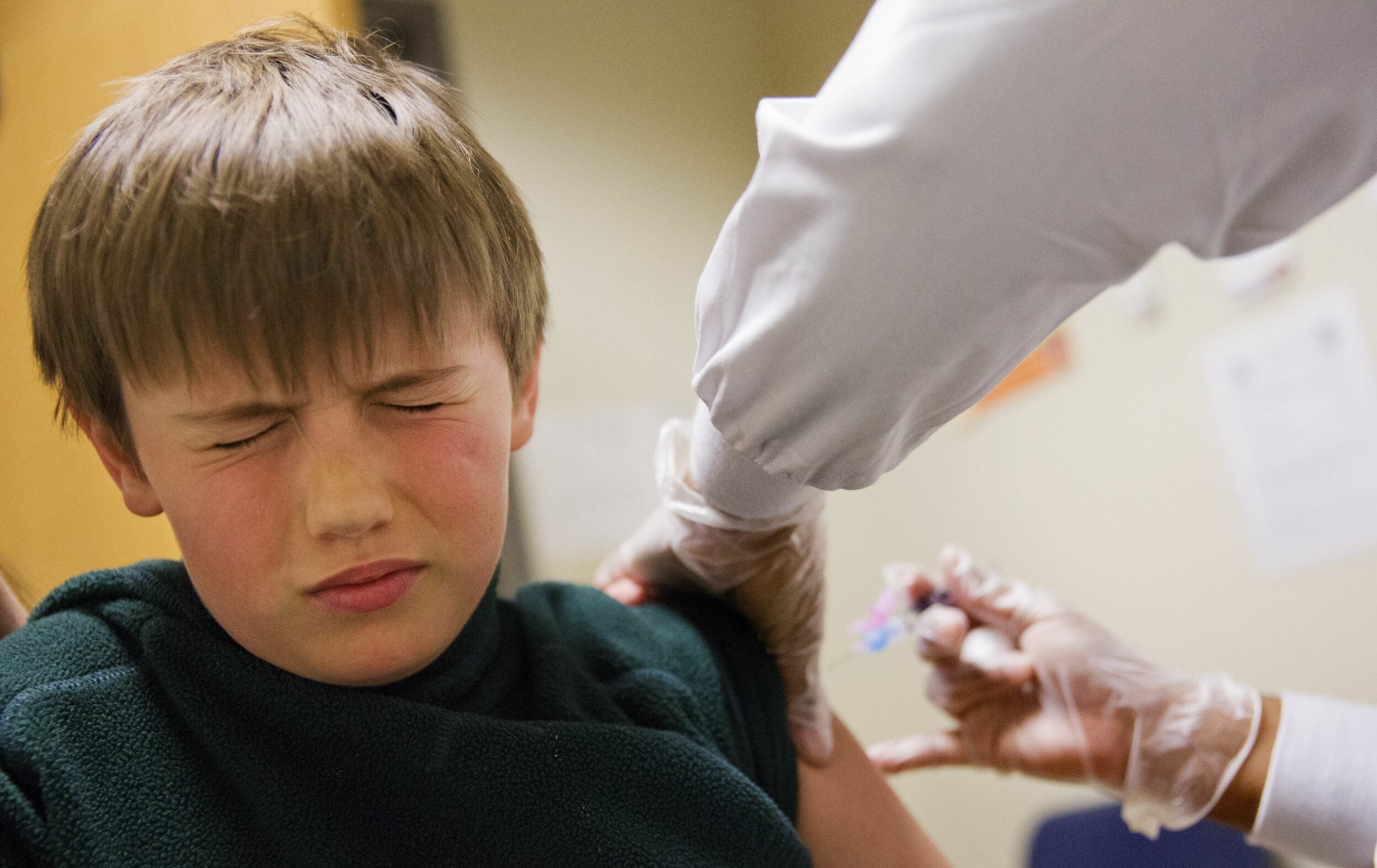Some pandemic precautions like curbside pickup and sanitizer stations at grocery stores were readily accepted and are likely to remain. Whether other more controversial measures that can reduce your chance of getting sick, such as mask wearing, stick around remains to be seen.
Some health professionals say they think face coverings are here to stay, in situations beyond just health care settings.
“Even though it has been politicized in the last year, I think people generally recognize that if you put a physical barrier between you and someone else, then there’s a lower risk of spreading germs in a community,” said Ajay Sethi, an epidemiologist and associate professor in the Department of Population Health Sciences at the University of Wisconsin-Madison.
News with a little more humanity
WPR’s “Wisconsin Today” newsletter keeps you connected to the state you love without feeling overwhelmed. No paywall. No agenda. No corporate filter.
Masks are still required if you board a plane or ride a bus. But many workplaces and restaurants have their own policies, some based on guidance from the Centers for Disease Control and Prevention that say people don’t have to cover their faces if they are fully vaccinated against COVID-19.
But public compliance and understanding on when to wear a mask has been spotty during the pandemic, making future behavior uncertain.
“I know many people have heard the message about removing masks for those who are vaccinated and sometimes fail to hear the part that says ‘for those who are vaccinated,’” said state Department of Health Services Deputy Secretary Julie Willems Van Dijk during a Tuesday briefing.
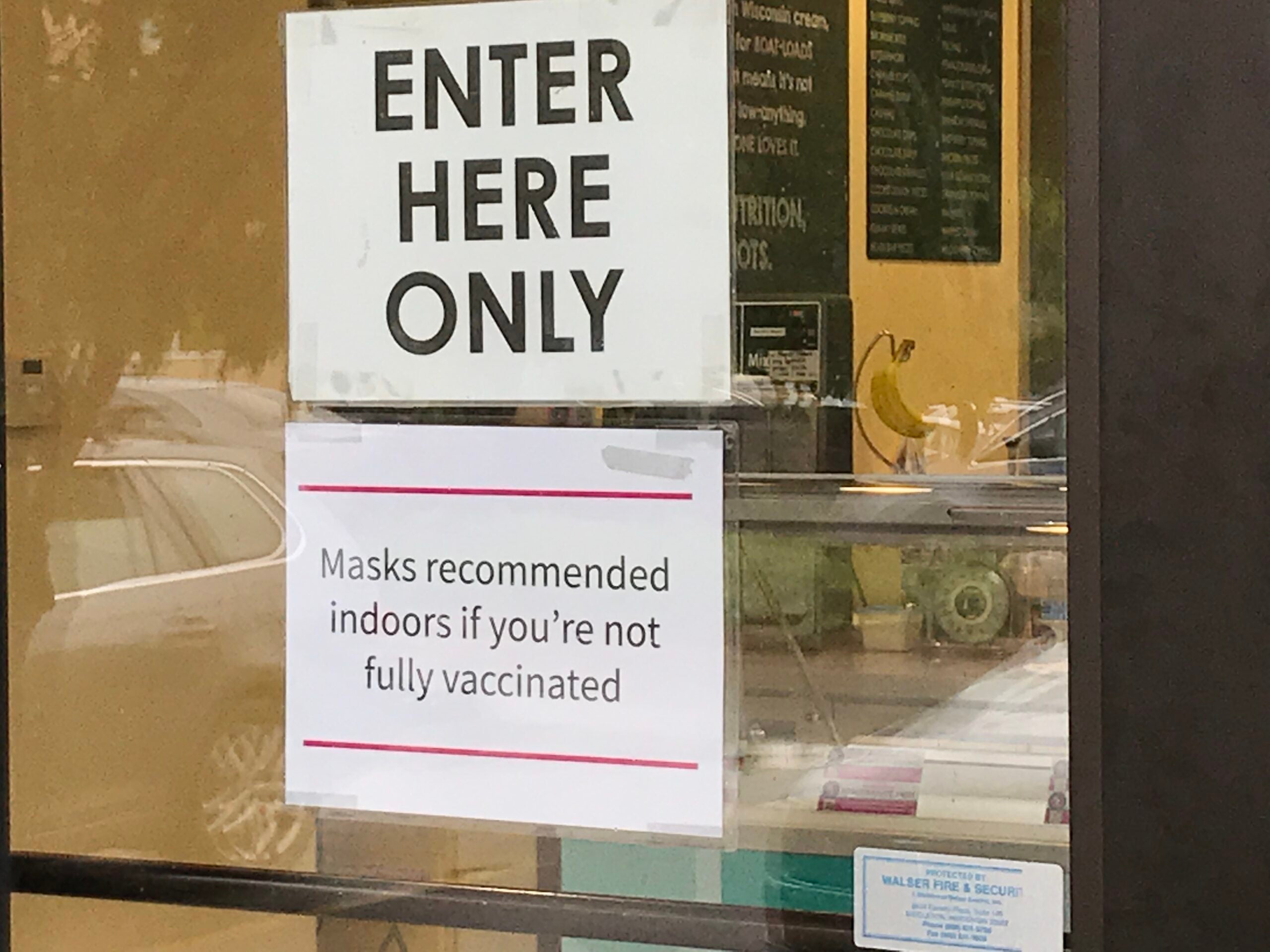
On Thursday, UW-Madison Athletics announced Camp Randall Stadium would not have capacity limits and no masks would be required for fans this football season.
Other venues recognize patrons may still be wary of how much social interaction they want. Metcalfe’s Market in Madison and Wauwatosa has color-coded wristbands workers and customers can wear to indicate how much, or little, contact they want.
Protocols taken during the pandemic such as social distancing, hand washing and mask wearing in some situations could help reduce COVID-19 and other respiratory diseases this fall as schools return to in-person instruction and workers return to the office, Sethi said.
“We have a culture of keeping distance when we have a cold. People have certainly said to me, and I’ve said it to others, ‘You don’t want to shake my hand, I’ve got a cold right now,’” he said.
Flu cases worldwide and in Wisconsin were down significantly this past winter, prompting state influenza surveillance coordinator Tom Haupt to describe it as the “the influenza season that wasn’t.”
During the pandemic, international travel was way down, and many states had stay-at-home orders. Most schools were providing instruction virtually. And mask mandates were commonplace.
Last July, some demonstrated against masks in downtown Madison. The first statewide mask mandate was issued in late July 2020 but was later struck down by the state Supreme Court. Madison and Milwaukee lifted mask orders in June.
Now that masks are no longer required, Sethi said he and other health professionals are hoping people will still use them in certain situations and stay home when sick.
Wisconsin Public Radio, © Copyright 2026, Board of Regents of the University of Wisconsin System and Wisconsin Educational Communications Board.

